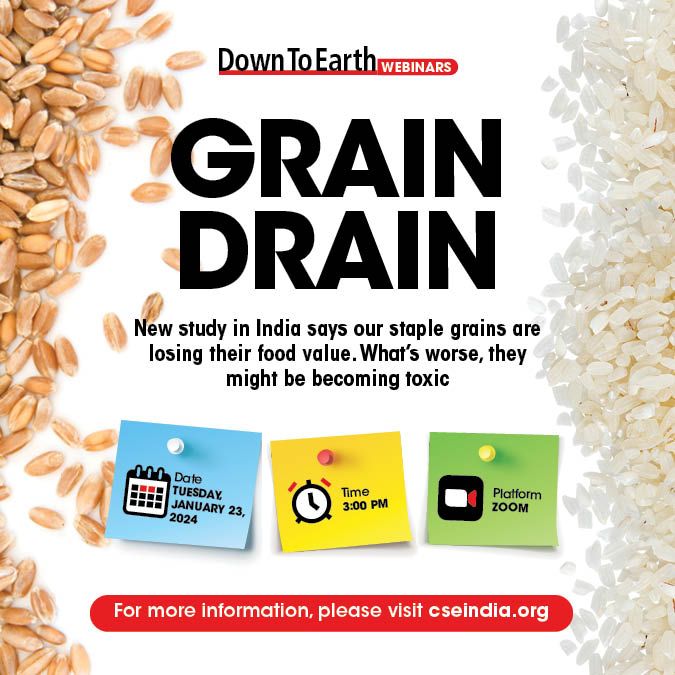GRAIN DRAIN

![]()
Date & Time Jan 23, 2024 03:00 PM in India / Platform : Zoom
The Centre for Science and Environment (CSE) is a public interest research and advocacy organisation based in New Delhi. CSE researches into, lobbies for and communicates the urgency of development that is both sustainable and equitable. The scenario today demands using knowledge to bring about change. In other words, working India’s democracy. This is what we aim to do.The challenge, we see, is two-pronged. On the one hand, millions live within a biomass based subsistence economy, at the margins of survival. The environment is their only natural asset. But a degraded environment means stress on land, water and forest resources for survival. It means increasing destitution and poverty. Here, opportunity to bring about change is enormous.But it will need a commitment to reform – structural reform- in the way we do business with local communities. On the other hand, rapid industrialization is throwing up new problems: growing toxification and a costly disease burden. The answers will be in reinventing the growth model of the Western world for ourselves, so that we can leapfrog technology choices and find new ways of building wealth that will not cost us the earth. Our aim is to raise these concerns, participate in seeking answers and in pushing for answers, transforming these into policy and so practice. We do this through our research and by communicating our understanding through our publications. We call this knowledge-based activism. We hope we will make a difference.
Description
New study in India says our staple grains are losing their food value. What’s worse, they might be becoming toxic Nutrition levels in India may soon be in for a big hit. For the past 50 years, the country has introduced high-yielding rice and wheat varieties at breakneck speed to achieve food security. But now a study led by scientists from Indian Council of Agricultural Research (ICAR) has looked at the food value of these modern-bred grains. The study delivers some dire warnings: the foodgrains that we eat have lost food value; instead they are accumulating toxins. Worse, by 2040, the grains will become so “impoverished” that they would worsen the country’s growing burden of non-communicable diseases. Join us in a webinar to know about this study and its very disturbing implications.
Join us and our esteemed speakers for a crucial webinar where we discuss the study and its disturbing implications: Click here

